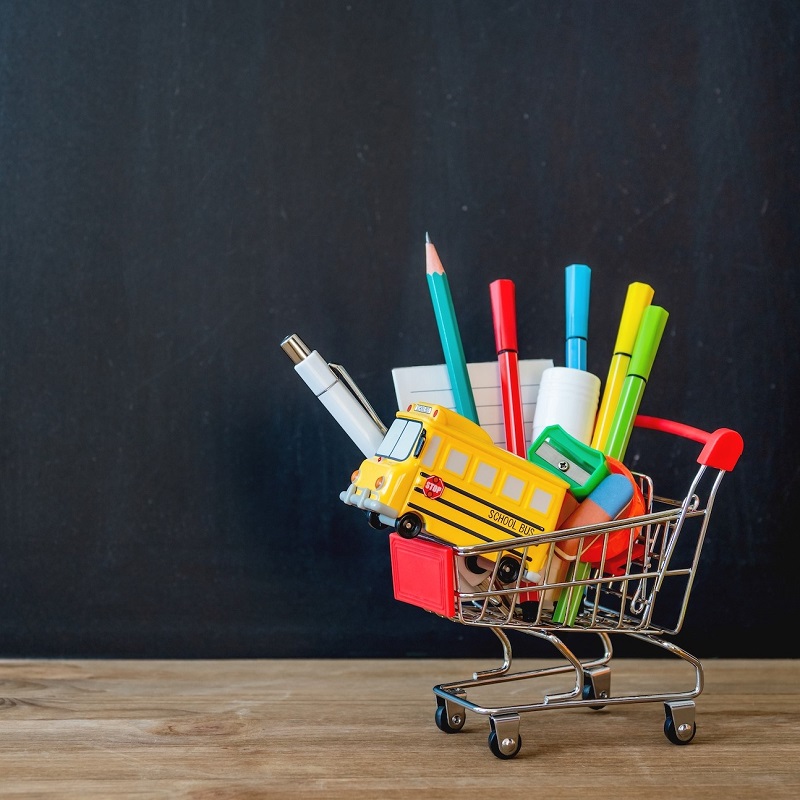RACONTEURPH
Stories worth sharing
Five ways to manage school-related expenses all year round
POSTED BY: Lionell Go Macahilig2023-08-01 23:33:49 PHT
The back-to-school season also means back-to-back expenses. On top of making ends meet amid the increasing costs of everyday necessities, households will now have to shoulder additional expenses.
Several educational institutions are anticipated to increase their tuition and miscellaneous fees by 3 to 10 percent for the upcoming school year, as the five-year moratorium imposed by the Commission on Higher Education has lapsed.
In a country where the annual cost of higher education can reach up to ₱150,000, the cost is the main reason why education remains inaccessible. While public schools and state universities do not charge tuition, Filipinos have to consider other expenses for the rest of the school year including food, school uniforms, books, supplies, and transportation.
As wise parents and breadwinners are compelled to work double-time in preparation for the school opening, here are five ways to help them manage school-related expenses all year round.
Declutter and reuse
Did you buy school supplies in bulk last year? How many of these are still lying around unused, stashed in drawers and cabinets? Set a time for spring cleaning to round up all the items you already own and check if they are still in good condition. Working pens and notebooks with lots of blank pages can still be reused or repurposed. Even old books and uniforms your kids have outgrown can be sold on relevant Facebook groups and online selling platforms for some extra cash.
Meal planning
Plan a week’s worth of meals and create a shopping list based on your plan so you can stay within budget. This will save you from the mental workload of having to think about what to eat every day and most importantly, will help you avoid unplanned expenses from food deliveries, eating outside, and making additional trips to the grocery store.
Expense tracking
You might be surprised how small, measly purchases accumulate in the long run. Tracking your expenses will allow you to take a good hard look at your spending habits. Whether you prefer a spreadsheet, a journal, or an app, keep a record of your expenses. From there, you can find out which expense to reduce so you can stay within budget and allocate it towards school expenses.
Quality over quantity
With sales and promos left and right, it’s always tempting to go for the cheapest school item you can find. While not every item is worth splurging on, it’s best to invest in quality items especially if they are used every day, such as school shoes and lunchboxes. These items may have a high one-off cost, but if they are sturdy enough, you won’t have to repair or replace them in the next few months.
Flexible loans
Every parent wants the best educational experience for their children, but multiple expenses — from tuition and school supplies to baon, transportation costs, and even extra-curricular activities – make this a challenge. If you find yourself short on cash to cover all these expenses, there are ways to get help without adding any more pressure to an already stressful situation. Whether you need to pay for an unexpected school expense or you simply need to add to your current budget, you can make use of convenient personal loan products that offer flexible payment terms, such as GLoan, GCash’s loan product.
With GLoan, abot-kaya ang back-to-school because you can get up to ₱125,000 straight to your wallet, which you can use to pay for different school expenses. You can use GLoan to fund tuition fees, arrange for transportation services, buy new sets of school uniforms, and shop books and stationery.
Eligible GCash users can borrow from ₱1,000 to ₱125,000, with a competitive interest rate of as low as 1.59% per month. With payment as low as ₱265 a month for 5-24 months, you don’t have to worry about disrupting your monthly budget. Suddenly have an upcoming field trip or an unanticipated school project? There’s no need to miss out. As long as you are eligible, you can get instantly approved with no additional documents needed. After which, your loan will be sent straight to your GCash wallet instantly!
Access GLoan through your GCash dashboard or find it under “Borrow.” No GCash yet? Download the GCash App on the Apple App Store, Google Play Store, or Huawei App Gallery! Kaya mo, i-GCash mo!
